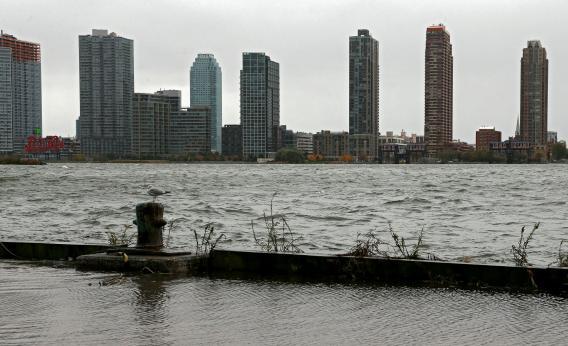You know what sounds like could provide a huge lift to the American labor market? Suppose a bunch of rich foreigners decided they wanted to buy expensive items manufactured right here in the United States of America. Imagine they especially wanted to buy houses, lifting boats specifically in the construction sector that’s been hammered by years of a weak housing market. Great news, right? Sadly not in today’s United States where we manage to make lemons out of every cup of lemonade, and a surge in foreigners wanting to buy up New York City real estate is of course portrayed as bad news:
“There’s a great deal of interest in New York, which is seen as relatively cheap compared to other global cities,” said Yolande Barnes, director of research for Savills, an international real-estate firm.
The growth in high-end projects in Manhattan comes as housing for the working and middle class is in increasingly short supply in the city. These buildings are proving so profitable that they are warping the local real-estate market, making it more difficult to put up more-affordable housing.
How is it that we’ve managed to turn this good news about housing exports into bad news about middle class affordability? Well, it’s artificial scarcity. Back in the 1980s there were “voluntary” quotas for how many cars Japanese companies could export to the United States. Not coincidentally, that’s when Honda came up with Accura and Toyota came up with Lexus. And imagine today if you told Japanese car companies that they were only allowed to manufacture a few cars a year. Well, they would only build luxury cars and people would say that foreign demand for Japanese automobiles is bad news for Japan because the middle class is now priced out of the car market. In the real world, though, Japanese firms try hard to address the mass market and foreign demand for Japanese cars is good news because it lets Japanese people make money by selling cars to foreigners.
By the same token, foreign interest in snapping up pieds a terres in New York City ought to be great news. It should create a lot of jobs for architects and construction workers. It should create upstream jobs for the people who cut the timber and make the metal that goes into buildings. It should create jobs in factories as people build the stoves and refrigerators to stock the new houses. And it should create downstream jobs as the construction workers and oven manufacturers take their paychecks to buy a new car or a night on the town. There should be a construction boom in New York and a construction boom in Silicon Valley and it should be providing lots of employment for working class men. But instead we’re having housing shortages in New York and in Silicon Valley. Not because we don’t have the technology to build lots more houses, but because we don’t have the zoning codes. So with only a handful of projects able to squeeze through the eye of the needle, we get projects that address only the very highest end of the market and the simultaneous occurence of joblessless and lack of affordable houses.
